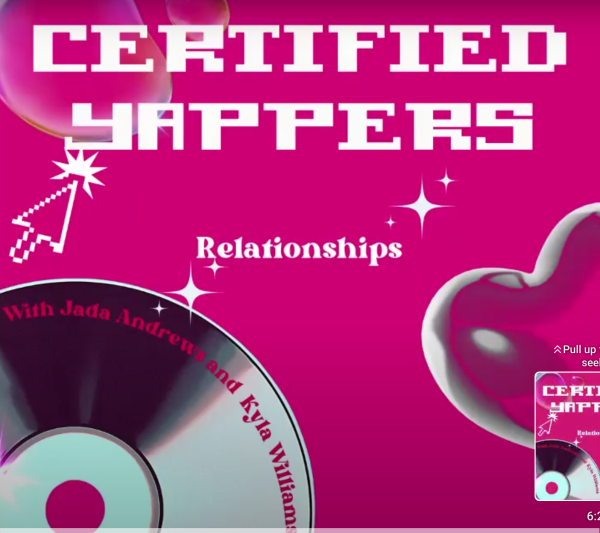The terrifying truth of Tiktok and it’s harmful trends

Photo from @h24mmy Tiktok
January 18, 2023
Everyone is aware that Tiktok is a booming app with an extreme influence. Statistics show that 67% of US teens are using Tiktok. Although Tiktok is giving the creators of the app extreme success, I find that teen users are not necessarily benefiting from the content produced.
One trend that has recently been showing up on my screen is called “core core.” This trend is where creators make a compilation of different videos — whether that content is from other Tiktoks, movie clips, news clips, etc. These compilations are made in order to show how the creator is perceiving the current world we live in.
This trend can be enlightening– it is an interesting way to look at how society is processing the world around us. Some of the videos can be positive, showing that we live in a progressive and productive society. While others are negative with the portrayal of a depressed and lonely society.
The videos that are noticeably upsetting contain content from movies like “Mother!”, “Midsommer,” and “Whiplash.” Two of these movies are physiological thrillers ,and one is a drama, and within these movies the characters are faced with grueling issues. Creators are using these clips as a way to express how they feel.
It is important to address why these creators feel depressed and if Tiktok is playing an active role in contributing to these depressed youths. Studies have proven that teens who are “addicted” to their devices are more likely to suffer from depression and anxiety. Tiktok creates a space where short fast videos are curated for a specific person based on an algorithm. These videos need a small amount of attention and are easy to watch for hours.
Teens using Tiktok and also have pre-existing mental health conditions are linked to studies that prove that using Tiktok with a previous mental condition can actually worsen that illness. Although “core core” can be used as an expression of these depressed teens, it may just be contributing to the worsening condition.
If the algorithm is working correctly then these videos may appear on the phones of other people that also suffer from mental illness.This creates a negative community. If this group is not actively trying to help each other then it could just continue to heighten the emotions present and push teens into a dark path.
The people making viral videos don’t necessarily have to be famous– they may have just created a video and posted it without thinking twice about it, and then the next day they are suddenly “famous.” This is having a huge impact on teen suicide. Video’s fluctuate from people trying to go viral by attempting a viral stunt or just feeling insecure because the creator went viral and received attention but it was negative or it was their one chance. The horrifying truth is that these trends are becoming a contributor of teen suicide.
Conclusively, Tiktok can be extremely harmful to young teens. To prevent teens from falling down a dark path, try and be aware that watching Tiktok does not positively impact teen’s mental health. It is crucial that teens using Tiktok are aware that it has been directly linked to causing/worsening mental health and that deleting the app can positively impact their lives.
So I suggest young adults try not to use Tiktok for a week and see how much more you are able to complete and just take that time to self-reflect and see how not using Tiktok impacted your life.










